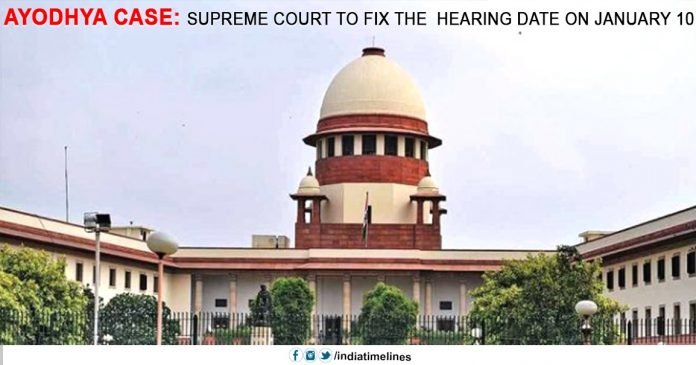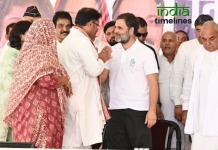
Supreme Court to fix the hearing date on January 10:- After Justice retired Justice Deepak Mishra, there was no special bench for hearing in this case. CJI said that a regular bench will be formed for hearing the matter, which will return further orders in this case on January 10.
Supreme Court to fix the hearing date on January 10
Ram Janmabhoomi-Babri Masjid land dispute will now be the next hearing on January 10 in the Supreme Court. On January 10, the matter will go to the special bench of the three Supreme Court judges. The names of the judges involved in this bench will be announced on January 6 or 7. After Justice retired Justice Deepak Mishra, there was no special bench for hearing in this case. CJI said that a regular bench will be formed for hearing the matter, which will return further orders in this case on January 10. Meanwhile, the Supreme Court has dismissed the PIL filed by advocate Harinath Ram, in which a daily hearing of Ayodhya dispute was sought. During the hearing in the Supreme Court, there was such a rush that there was no place for a foot. When the matter came to CJI, they spoke of hearing on January 10 in a few seconds.
Now the bench of three judges will be formed. The chief justice constitutes the bench in the administrative side. Earlier, the hearing of the Ayodhya case was on the bench of three judges headed by the Chief Justice Deepak Mishra, after the retirement of Justice Deepak Mishra, the matter was listed in front of the sitting chair of the current Chief Justice. Prior to retirement, the Bench headed by Chief Justice Deepak Mishra had said in an important decision that the matter was a matter of dispute and had refused to refer the matter to the constitutional bench.
Explain that the Supreme Court had said on October 29 last year that this matter would be listed before the appropriate bench in the first week of January, which would determine the program for its hearing. On November 12, the Supreme Court lawyer Harinath Ram filed a PIL asking the Supreme Court to hear the case as soon as possible. The petitioner had said that this is a matter related to the recognition of millions of Hindus. The Ram Janmabhoomi-Babri Masjid controversy has been stuck for many decades. The case hearing refused by the Supreme Court early.
Supreme Court to fix the hearing date on January 10: Ayodhya case
PM Modi had said that whether the ordinance should be brought in relation to the Ram temple, the decision will be taken after the completion of the legal process. He accused the Congress leaders of slowing down the legal process in this matter. Supreme Court to fix the hearing date on January 10
last year, The Supreme Court had said on October 29, that this matter will be listed before the appropriate bench in the first week of January, which will determine the program for its hearing. Later, the All India Hindu Mahasabha filed an application and requested the date of the hearing before the court refused. The Hindu Mahasabha is a defendant in the appeal filed by the heirs of M. Siddiq, one of the original arguments in this matter.
On September 27, 2018, the three-member bench, headed by the then Chief Justice Deepak Mishra, refused to send a comment in a 1994 decision with a majority of 2-1 for a fresh consideration of the five judges. Actually, the verdict was commented that the mosque is not an integral part of Islam. Supreme Court to fix the hearing date on January 10
What is the whole case
The Babri Masjid was dropped in Ayodhya On December 6, 1992. In this case, there was a criminal case as well as a litigation case. The situation establishing to the title dispute is pending in the Supreme Court. On September 30, 2010, Allahabad High High Court had said in the judgment that the middle of the three domes would be Hindus, where at present the idol of Ramlala is. The second part was given to the Nirmohi Akhara, which included Sita Kitchen and Ram Chabutra, the remaining one-third part was given to the Sunni Central Waqf Board. This decision was challenged by all the parties in the Supreme Court. On May 9, 2011, the Supreme Court restored the status quo by banning the Allahabad High Court verdict. After this, hearing of the case began last year.




































